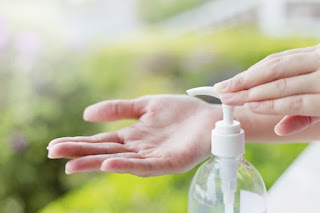How To Choose The Right Hand Sanitiser
Choosing a hand sanitiser that will be appropriate for your situation is key to protecting your hands at all times. The problem with many sanitiser is that they tend to be too harsh for daily use. Often, they are used on a regular basis and the product can become irritating to the skin. This article will give you some guidance on which sanitising products to look out for and how to choose one for your needs.-
1)Alcohol or chlorine based-Most hand sanitiser UK products contain either alcohol or chlorine combined with an antibacterial gel. The reality is that chlorine-based hand sanitiser gel are more effective at killing bacteria than just washing with warm water and soap. You should always buy hand sanitiser gel strips the washes off more skin surface than just plain washing with soap and water, leaving more moisturized skin in your pores. If using a gel sanitiser, make sure it's alcohol free as alcohols have been shown to dry out skin and may actually increase the risk of bacterial infections. Unfortunately, unless you know exactly what ingredients are in any product you use, it's hard to know whether the product will suit your circumstances.
2)Read the label-It's important to read the label on hand sanitiser very carefully, especially if you have sensitive skin. Many products do not contain the correct substances for sensitive skin, so it's important to read the labels very carefully before purchasing them. If you are buying a product from a supermarket, check that it is an alcohol hand sanitiser gel, and read the ingredients on the back of the packaging to see if it contains alcohol. The majority of over the counter sanitising gel products do contain alcohol, so be careful. Many gel sanitiser contain triclosan, which can be harmful to the skin, so look out for this when reading the label.and today there are many organizations like i-cleanse.com who make hand sanitiser who are keeping all these points in mind for the customer
3)Alcohol-based hand sanitiser products-These work in much the same way as the sanitiser with sugar, but they use alcohol instead of a sugar solution to increase the alcohol concentration. It is important to remember that alcohol-based hand sanitiser do not contain chlorine, which is necessary to kill germs. If you suffer from skin conditions such as acne or eczema, an alcohol-based hand sanitiser may be too harsh for your condition. It is also worth remembering that although most alcohol-based hand sanitiser don't smell at all like alcohol, some do and if this is an important factor in your choice then make sure that any hand sanitiser you choose is fragrance-free.
Finally, you should know that alcohol-based hand sanitiser products often contain a chemical called sorbitol. Sorbitol is used because it is pleasant and sweet-smelling, unlike that produced by sugar. This sugar alternative is very similar to the flavour of cheap coffee. It's well-known that sorbitol can cause irritation to the eyes, so if your hands are often getting dirty it may be more advisable to use a sugar-free hand sanitiser. As well as being cheaper to use, this type of hand sanitiser products tend to last longer than sugar-based ones.


Hello There. I discovered your blog the usage of msn. That is a very neatly written article. I will be sure to bookmark it and come back to read more of your helpful info. Thanks for the post. I’ll definitely return. saliva rapid antigen test
ReplyDelete